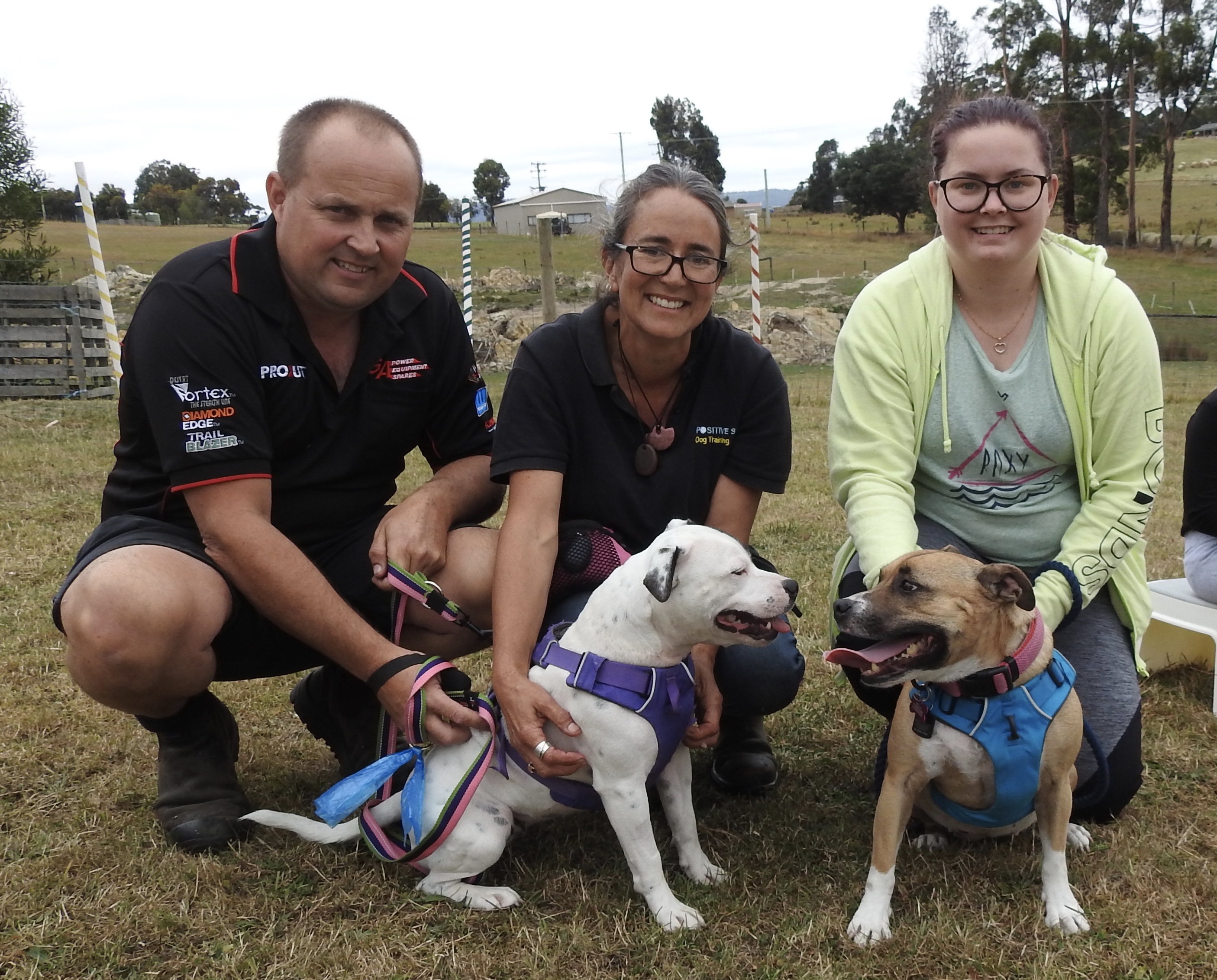The Association of Pet Dog Trainers Australia (APDT) and Pet Professionals Guild Australia (PPGA) have joined forces to promote the use of humane, positive reinforcement methods to dog owners and the dog training industry, and they say that science backs up their call, a 2018 study conducted for the BCSPCA showing that a positive, reward-based approach to dog training, yields the best results.
Jo Atkins, owner of Positive Spin Dog Training in Wattle Grove, says that she first became interested in positive training methods about 18 years ago and, at that time, there were very few trainers in the south of Tasmania using these methods.
“Now there are at least 10 I can think of, plus a veterinary behaviourist in the Greater Hobart area,” said Jo.
“We try to have regular catch ups to keep a thriving community of trainers happening.”
But, she says, there is no compunction for them to do so, with no formal qualifications required for dog trainers in Australia.
“Dog trainers are not accountable to any regulations,” said Jo.
“I am, because I chose to join an organisation that has a code of ethics, but you don’t have to do that.”
Jo has a Certificate IV in Companion Animal Services and is a member of the PPGA, which not only has a code of ethics, but also a continuing education system to make sure its members stay up to date with the latest in modern, science based, humane methods of training.
“Australia’s dog training industry is not government regulated and some trainers still use antiquated force-based methods and equipment, such as electronic devices, choke or prong collars, which can cause pets serious injury,” says Barbara Hodel, president of the PPGA.
The APDT and PPGA are also appealing to media organisations to reject forceful, painful and aversive training methods, as seen in the television series Dogs Behaving (Very) Badly.
“These television programmes perpetuate the misconception that there are “quick fixes” to training and behaviour issues,” explains Barbara.
“Dog owners are misguided by these old-fashioned, force-based methods and equipment, which can lead to behavioural problems like fear or aggression, psychological damage, total shut-down and even risk injuries - either to dog, human or both,” she says.
“Using aversive training methods can also damage the dog-human relationship, which often leads to owners surrendering their dogs to animal shelters and pounds.”
Jo agrees, “You can train a dog really effectively with punishment, but that doesn’t make it nice for the dog.
“I really think that it is important to dispel some of the myths surrounding dogs, such as the “alpha dog” and dominance in dog training, and to replace those stories with up to date information concerning calming signals, how dogs learn and what dogs need to be happy in today’s hectic domestic world,” she said.
She said many dog owners don’t realise that they are using punishment training, growling at their puppies for inappropriate behaviour, rather than interrupting them and guiding them away from what you don’t want them to do, to something that you do want them to do, and rewarding them when they are calm.
“It might have gone well for a while as a puppy, and then the dog gets to eight months of age or so and they are relinquished to the dog’s home or owners seek the help of a trainer,” said Jo.
“I see a lot of those dogs.
“If a puppy school with a positive philosophy was taken on sooner, we’d probably have less adolescent issues.”
Jo holds training classes at her farm in Wattle Grove and also on the oval at Cygnet Primary School, she has rolling enrolments, starting with a personal consultation to familiarise owners with the language used in the class as well as familiarising herself with the dog.
“Dogs give a lot of subtle signals to show you that they’re not happy before they lunge and bark, and just because you use food in training (to get the behaviour you want) you are sometimes pushing them to do something they’re not ready to do,” said Jo.
Jo says she works carefully on the makeup of the classes, ensuring that reactive dogs are slowly introduced to a class of calm dogs.
“If I had six dogs all barking at each other in a class, the reactive dog would just flip out,” said Jo.
“My idea of a successful class is dogs that are relaxed and happy, and not barking.
“If we can get a reactive dog behind the shed, popping out every now and then, getting rewarded for looking at the other dogs, after three or four weeks you get a dog that can join a class.
“And previously they’ve gone to the dog park week after week and got jumped on inappropriately by too many dogs, and they learn to aggress to get them off, because owners don’t get it.”
Jo says she has clients who have been bringing their dogs to class week after week, for years, because they just find it a great way to spend quality time with their dogs.
For further information, head to the Positive Spin Dog Training Facebook page.
Don't miss this story and much more in this week's Huon News, available by subscription online and from stores all around the Huon Valley and beyond.


